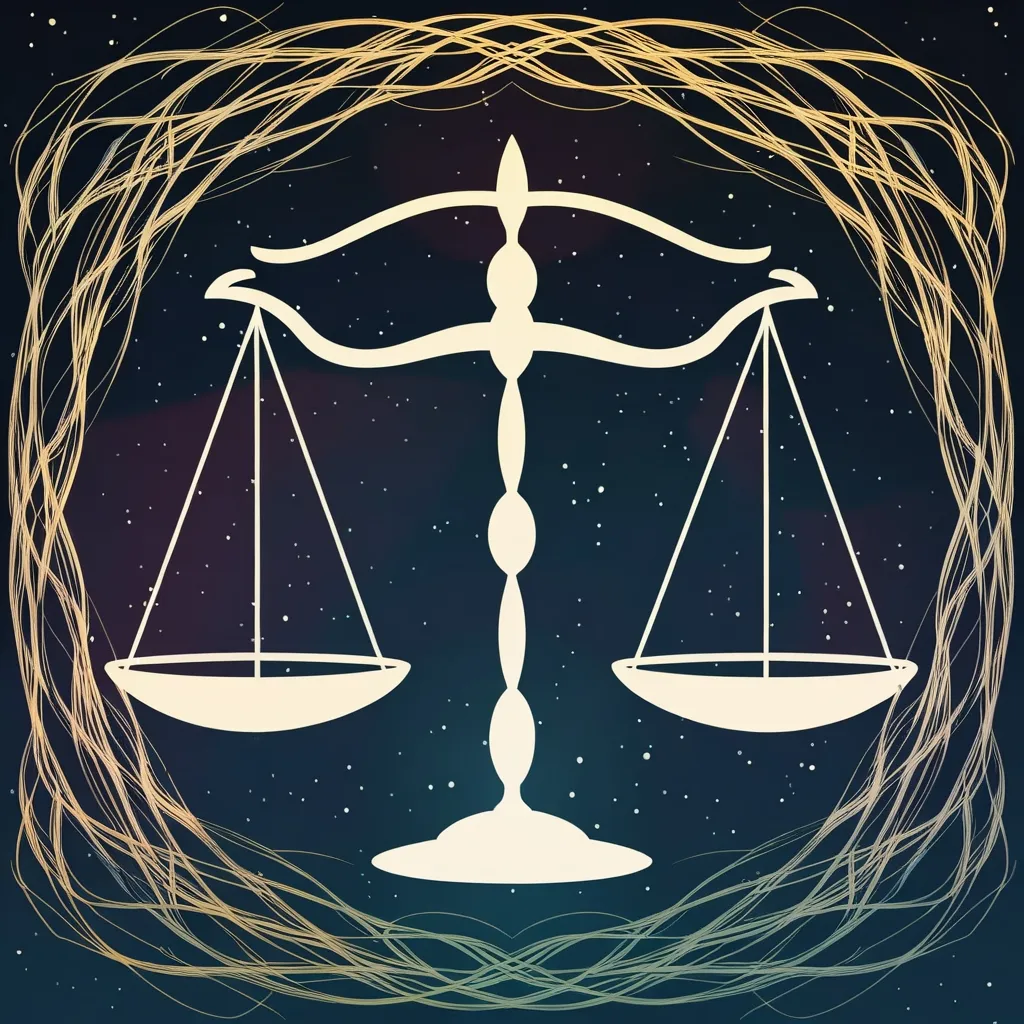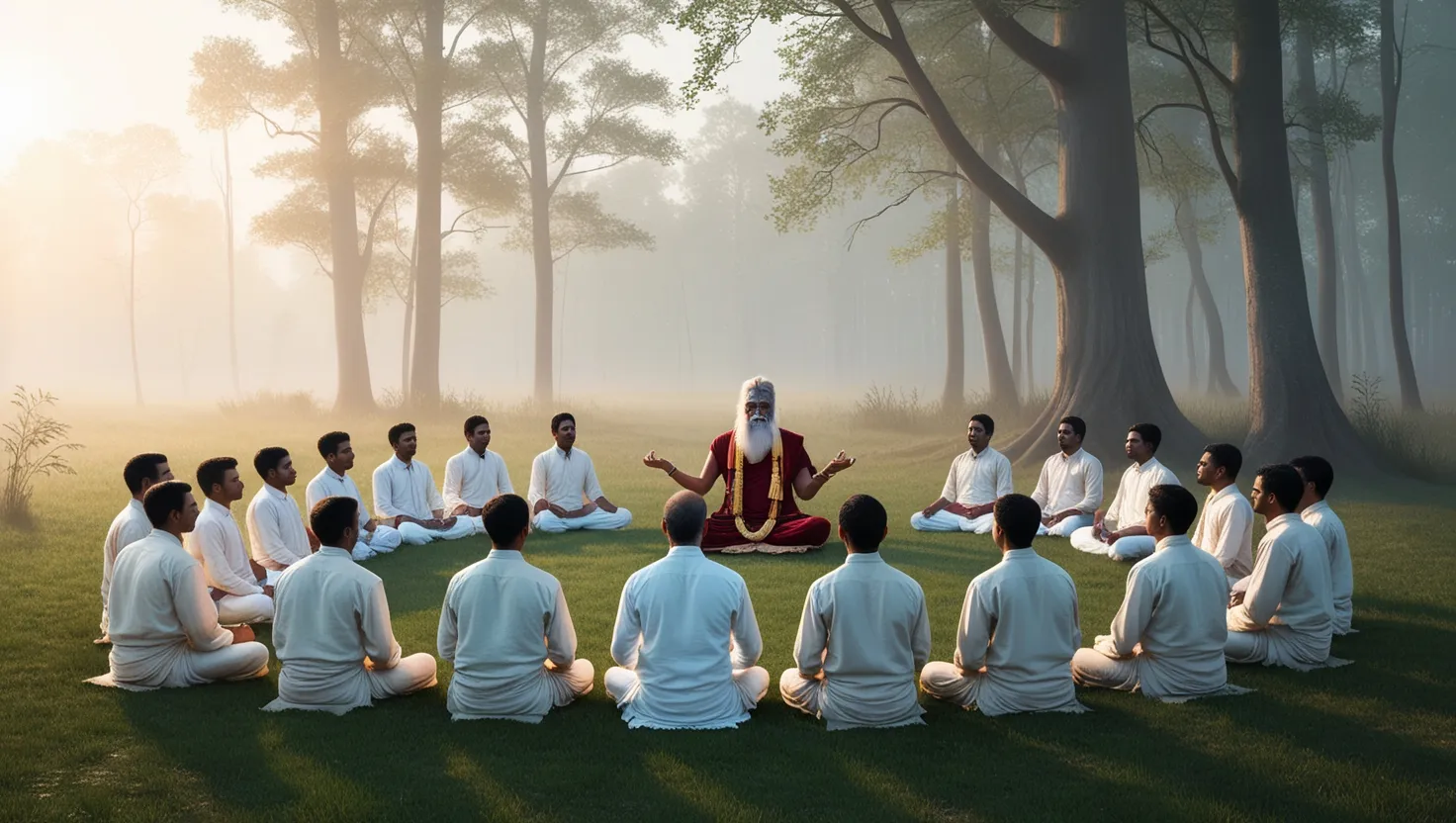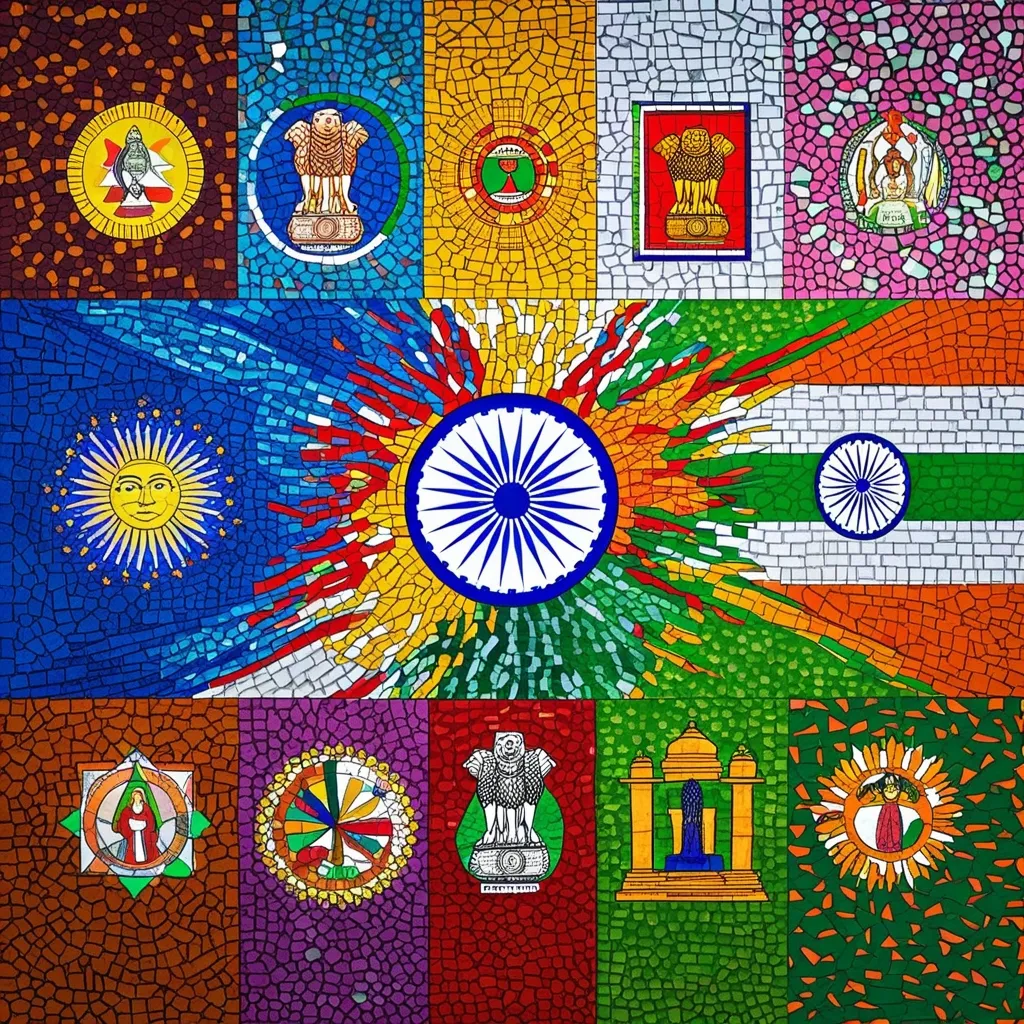Karma: More Than Just “What Goes Around Comes Around”
We’ve all heard the phrase “what goes around comes around” when talking about karma. But let me tell you, there’s so much more to it than that simple idea. Karma in Hinduism is like this intricate tapestry of cause and effect, balance, and spiritual growth. It’s not just about getting punished for bad deeds or rewarded for good ones.
Think of karma as the universe’s way of keeping everything in check. It’s like a cosmic accountant, making sure all actions have appropriate reactions. But here’s the kicker - it’s not about punishment. It’s about guiding us towards enlightenment and personal growth.
Now, let’s dive into the different types of karma. Yeah, you heard that right - there’s more than one! First up, we’ve got Sanchita Karma. Picture this massive storage unit filled with every single thing you’ve ever done, said, or thought - not just in this life, but in all your past lives too. It’s like your soul’s personal hard drive, storing everything that shapes your journey through multiple lifetimes.
Then there’s Prarabdha Karma. This is the stuff from your Sanchita Karma that’s supposed to play out in your current life. It’s like the universe saying, “Okay, here’s what you need to deal with right now.” But don’t worry, it’s not everything at once. The universe isn’t trying to overwhelm you - it’s just giving you what you can handle in this lifetime.
Last but not least, we’ve got Kriyamana Karma. This is the karma you’re creating right now, with every choice you make. It’s like you’re constantly writing new chapters in your karmic story. The cool thing is, this is where you have the power to shape your future. Every action, every decision - it all adds up and influences what’s to come.
Now, here’s something that might blow your mind - it’s not just about what you do, but why you do it. The intention behind your actions is super important in determining their karmic weight. Let’s say you help someone out. If you’re doing it because you genuinely want to make their life better, that’s good karma. But if you’re just doing it to look good or get something in return? Not so much.
Karma is closely tied to this concept called dharma. Think of dharma as your personal guidebook for life. It’s all about doing the right thing, fulfilling your duties, and living with integrity. When you follow your dharma, you’re setting yourself up for good karma and contributing to the overall harmony of the universe.
All this karma and dharma stuff plays a big role in the Hindu belief of reincarnation, or samsara. Good karma can lead to a better rebirth, while bad karma… well, let’s just say it might not be as pleasant. But here’s the thing - even a not-so-great rebirth is seen as an opportunity to learn and grow.
One crucial thing to remember is that karma is yours and yours alone. You can’t pass it off to someone else, and no one can take it away from you. It’s all about personal responsibility.
Now, you might be thinking, “What about when bad things happen to good people?” Well, in Hindu belief, there’s no such thing as true injustice. What looks unfair to us might just be the result of karma from past lives that we can’t remember. It’s a way of understanding that everything happens for a reason, even if we can’t see it right away.
Here’s a cool concept: nishkam karma. It’s all about doing things without expecting anything in return. No ego, no desire for personal gain - just pure action. This kind of karma is super valuable for spiritual growth and can lead to a more balanced life.
Karma isn’t just some abstract idea - it has real implications for how we live our lives. By understanding our karma, we can make better choices and work on our personal growth. Next time you’re in a tough spot, instead of getting frustrated, try reflecting on your past actions and see if you can learn something from the situation.
And get this - karma doesn’t just affect this life. It carries over from one life to the next. So the choices you make now could impact your future lives. Talk about long-term consequences!
In Hinduism, having a spiritual teacher or guru can be a game-changer for your karma. A good guru can guide you through practices that help burn away accumulated karma, both from this life and past ones. It’s like having a personal trainer for your soul!
Karma isn’t just an individual thing, either. Groups of people can create collective karma. Think about the actions of a whole community or nation - they can have karmic consequences that affect everyone involved. It’s a reminder that we’re all in this together and need to act responsibly as a group.
So, next time you hear someone talk about karma, remember that it’s way more than just “what goes around comes around.” It’s this incredible system of balance, personal growth, and universal harmony. It’s about taking responsibility for our actions, living with intention, and constantly working towards becoming better versions of ourselves.
Karma teaches us that every action, every thought, and every intention matters. It’s not about living in fear of consequences, but about embracing the power we have to shape our own destiny. By understanding karma, we can navigate life with more wisdom, make choices that align with our true selves, and contribute positively to the world around us.
In the end, karma isn’t just a belief system - it’s a way of life. It encourages us to be mindful, to act with compassion, and to always strive for personal and spiritual growth. Whether you fully believe in the concept or not, there’s something beautiful about the idea that our actions have meaning and that we have the power to create positive change in our lives and the world.
So, the next time you’re faced with a decision, big or small, take a moment to consider its karmic implications. How will this action affect you, others, and the world around you? By living with this awareness, we can all contribute to a more harmonious and balanced universe, one choice at a time.
Remember, every moment is an opportunity to create good karma. Whether it’s through acts of kindness, pursuing personal growth, or simply living with integrity, we’re constantly shaping our karmic future. It’s a powerful reminder that we’re not just passive observers in life, but active participants in our own destiny.
Karma isn’t about perfection - it’s about progress. We’re all going to make mistakes and face challenges. But by understanding karma, we can approach these moments as opportunities for learning and growth rather than setbacks or punishments.
In a world that often feels chaotic and unpredictable, the concept of karma offers a sense of order and purpose. It reminds us that our actions matter, that there’s a deeper meaning to our experiences, and that we’re all connected in this vast, intricate web of cause and effect.
So, let’s embrace the complexity and beauty of karma. Let’s live with intention, act with compassion, and always strive to create positive ripples in the universal pond. After all, in the grand karmic scheme of things, every little action counts.






